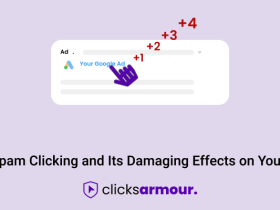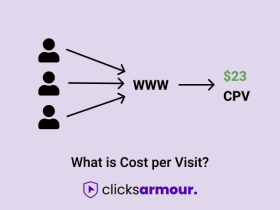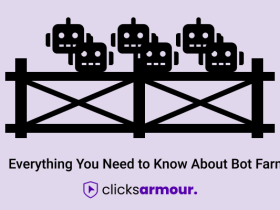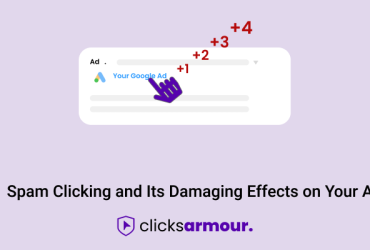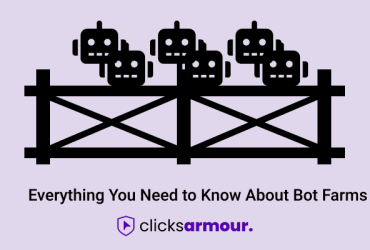If you’re a business owner, it’s important to be aware of the potential threat posed by click farms.
Simply put, a click farm is a group of people who are paid to click on ads or links with the sole purpose of artificially inflating engagement metrics.
While click farms have been around for years, they’ve become increasingly sophisticated and widespread in recent years, thanks in part to the rise of social media.
How Do Click Farms Work?
There are two main ways that click farms generate clicks: by using real people or by using automated bots.
In either case, the goal is to create a false sense of engagement by artificially inflating metrics such as likes, views, shares, and clicks.
This can be done relatively easily and inexpensively, which is why click farms have become such a problem.
The Negative Impact of Click Farms on Businesses
Click farms can have a serious negative impact on businesses in a number of ways.
First and foremost, click farms can cause businesses to waste money on paid advertising. When businesses use click farms to generate fake engagement, they’re essentially paying for something that isn’t real.
This means that the ROI on their paid advertising campaigns will be lower than it would be if they were using organic or genuine engagement tactics.
Additionally, if a business is caught using a click farm, it can damage its reputation. In today’s age of social media, word spreads quickly—and not always in a good way.
If a business is caught using a click farm to generate engagement, it will likely be called out by disgruntled consumers and competitors alike. This could lead to long-term damage to the business’s reputation.
The Negative Impact of Click Farms on Consumers
Click farms can also have a negative impact on consumers. When people see high levels of engagement on a piece of content (likes, comments, shares), they’re more likely to view that content as accurate and trustworthy.
However, when those engagements are generated by a click farm, they’re not real—which means that the consumer could be viewing inaccurate information.
Additionally, fake reviews are becoming increasingly common as businesses turn to click farms to generate them.
This means that consumers could be reading positive reviews about products or services that aren’t actually any good. In other words, click farms could lead people to make bad purchasing decisions.
What Countries Are Click Farms Based From?
While click farms used to be small operations run out of someone’s basement, they have now become large-scale commercial operations based in countries with low labor costs. The most common click farms are based in Bangladesh, China, Indonesia, Pakistan, and Vietnam.
Click farms have also been found in other countries such as Brazil, Egypt, Russian Federation, and Thailand. While some click farms are run by individuals, many are now operated by businesses that offer social media services to clients.
These companies often use software to automate the process of generating fake engagement, making it difficult to detect. As a result, click farms have become an increasingly sophisticated problem for social media platforms.
Are Click Farms Illegal?
While the use of click farms is not technically illegal, it is generally viewed as unethical. A click farm is a type of online operation in which workers are paid to artificially inflate metrics such as likes, views, and followers.
This can be done by clicking on ads or links, viewing videos, or leaving comments on behalf of a client.
Click farms are often located in countries with low labor costs, and the workers typically work long hours for little pay. As a result, click farms have been criticized for taking advantage of vulnerable workers.
In addition, the use of click farms can distort metrics and give businesses a false sense of their popularity. For these reasons, many companies avoid working with click farms, even though there are no legal prohibitions against doing so.
How Can You Detect Click Farms?
By keeping an eye on your traffic, you can determine whether click farms are eating into your advertising budget.
When “click farming” an ad, click farms usually follow the same routine. There are a lot of people who all use the same browser, IP address, device, region, etc.
If you see a cluster of clicks coming in from the same place at the same time, you should investigate your engagement rates.
Your advertising performance should ideally be transparent on any platform serving them. When there is a rapid increase in traffic and click-through rate but no actual sales, this is perhaps the result of a click-farm attack.
What Can You Do About Click Farms?
Unfortunately, there’s no surefire way to prevent click farms from targeting your business. However, there are some steps you can take to minimize the risk.
For example, keep an eye on your engagement metrics and look out for any sudden spikes or dips that could be indicative of click fraud.
To maximize your ad’s effectiveness, you should avoid showing it to people in countries or regions notorious for hosting click farms. Any advertising platform should allow you to quickly configure this setting. An additional option is to prevent users from certain IP addresses from seeing your adverts.
Challenge Captchas
Human verification CAPTCHA problems aren’t as difficult to beat as they once were. Workers in a click farm may easily access your adverts within 5 seconds.
However, by presenting them with a tasking issue that calls for their undivided attention, you may discourage them from depleting your ad money in bulk.
Additionally, consider investing in anti-fraud software specifically designed to detect and block clicks from click farms. By taking these precautions, you can help protect your business from the negative effects of click fraud.
Conclusion
Click farms are a murky business, but they’re not going anywhere anytime soon. If you’re in the business of selling online ads, it’s important to be aware of how click farms can impact your inventory.
And if you’re concerned about your own clicks and engagement on social media, there are steps you can take to protect yourself.
Be sure to stay informed and stay safe out there. Remember anti-fraud and click fraud prevention software such as ClicksArmour are your best protection against click farms.
Click here to learn more about ClicksArmour’s anti-fraud solutions!



